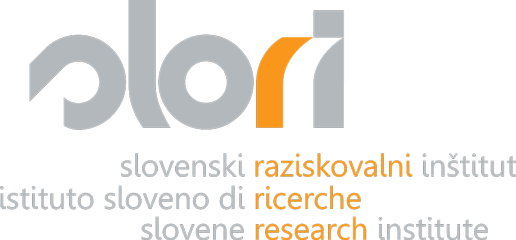A European project within the Cross-border Cooperation Programme Italy-Slovenia 2007-2013
Project promoter (VP): Slovenian Cultural and Economic Union – Slovenska kulturno-gospodarska zveza (SKGZ).
Partners (PP): Slori-Slovenski raziskovalni inštitut, Unione Italiana, CAN Costiera, Jacques Maritain Institute, Cultural association Ivan Trinko, Institute for administrative law from Ljubljana, University of Trieste
Manager of the SLORI project team: dr. Devan Jagodic.
Collaborators: Zaira Vidau, Robert Štoka, Adriana Janežič, Emidij Susič, Norina Bogatec
Project implementation period: 2012-2014
The aim of the standard project LEX is to guarantee further collaboration between the Italian minority in Slovenia and the Slovenian one in Italy, established during previous European programming periods; the specific areas the project is dedicated to are the valorization and sharing of the historical legacy and identity and the protection of minorities from a juridical viewpoint.
Slori is responsible for implementing two researches and several didactic laboratories:
1) A thorough review of the existing legislation in the field of protection of minorities. This review is to be performed on various levels: international (UN Declaration on the Rights of Persons Belonging to National or Ethnic, Religious and Linguistic); European (Council of Europe, EU, CEI, OSCE); national (Italy, Slovenia); regional (Region Friuli Venezia Giulia); provincial (Provinces of Trieste, Udine and Gorizia); local (municipal deliberations). In other words, this means elaborating a basic framework of European legislation in the field of protection of minorities and performing a further, more specific work, dedicated to the rights of the Slovenian and Italian minorities in the cross-border area, which is the subject-matter of a historical interstate border agreement.
2) A research on the effects of the legislation on the preservation of the minority language, culture and identity. This sociological quantitative research was performed on a representative sample of inhabitants of the cross-border area considered (2000 people); the aim is to evaluate the perception the public opinion has of the effects of the implementation/non implementation of the legislation regarding minorities’ protection. The questionnaire was divided into 4 different theme sections:
a. General features of the interviewed;
b. Linguistic profile of the interviewed and of their families;
c. Perception of the use of Slovenian language in different spheres of public administration (municipality, health, tax office, public order units) and in road signs;
d. Positions towards the use of Slovenian language in different spheres of public administration and in road signs.
3) Didactic laboratories with high school students of schools with Slovenian as the teaching language in Italy and schools with Italian as the teaching language in Slovenia (A.Y. 2013/14).
For further information: http://lex.skgz.org
Laboratories within the project “LEX – Analysis, application and development of the protection of minorities in Italy and Slovenia”
The historical development and the current position of national linguistic minorities in the Italian and Slovenian border area, the basic laws on minorities protection on an international, national and local level, and the diffusion of multicultural values are the main contents of the 18 didactic and informative laboratories organized in 2013 by SLORI in six schools with Slovenian as a teaching language in Trieste and Gorizia and three schools with Italian as a teaching language in Koper, Izola and Piran. The laboratories fell within the activities of the standard project LEX – Analysis, application and development of the protection of minorities in Italy and Slovenia, co-financed by the Programme for cross-border cooperation Italy-Slovenia 2007-2013. They were dedicated to students of the last two years of minority schools in both countries. The laboratories were conducted by historian Štefan Čok representing the Slovenian national community in Italy and by lawyer Andrea Bartole representing the Italian national community in Slovenia. The intertwining of historical and law contents allows students to deepen knowledge on current laws for protecting both minority communities, as well as to discover the past situations that led to the current one. The work method comprised a mixed use of frontal lectures and interactive approaches which aimed at stimulate active participation of students with practical examples of minority rights application.
